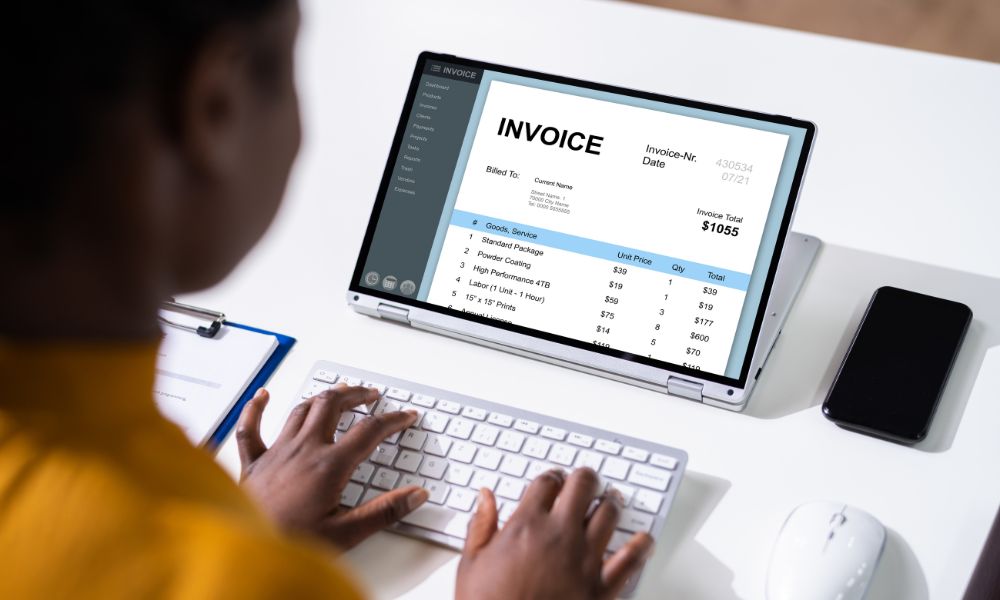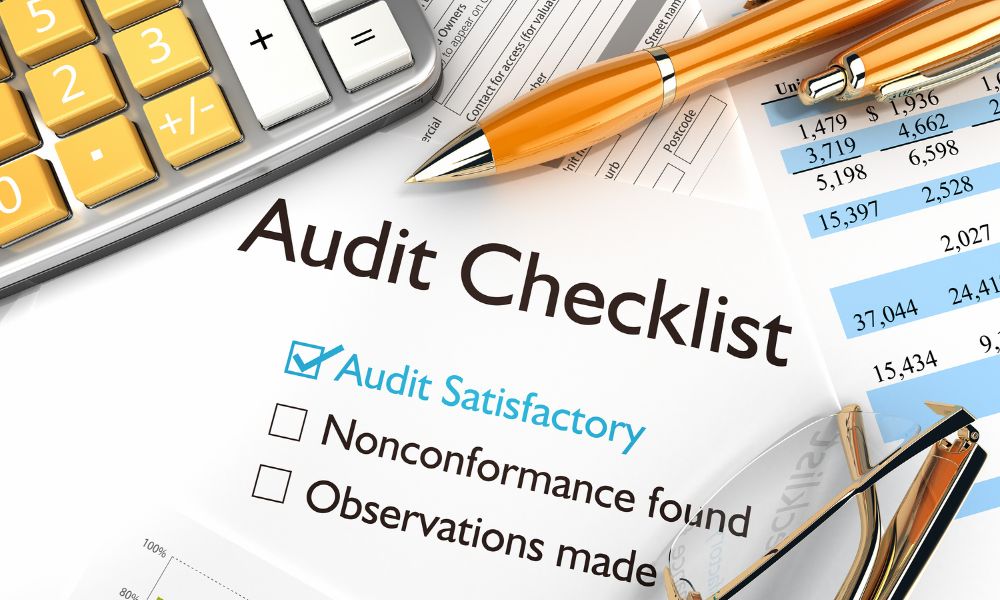Small Business CPAs specialize in providing accounting and financial services to small businesses, offering bookkeeping, tax preparation, financial analysis, and consulting. They play a crucial role in helping businesses manage finances, navigate tax regulations, and make informed decisions. A Certified Public Accountant can help maintain accurate financial records, minimize tax liabilities, and maximize profitability. They serve as trusted advisors, offering guidance on financial planning, budgeting, and risk management.
Scope and Challenges in Small Business Accounting
Small Business Accounting, including tasks like bookkeeping, payroll processing, tax planning, and financial reporting, presents a myriad of challenges for accounting firms and small business accountants alike. CPAs face challenges such as limited resources, tight budgets, and complex regulatory requirements. They must stay updated on tax laws and accounting standards for compliance and reliable client advice.
Qualities of an Ideal Small Business CPA
Technical Proficiency
An ideal Certified Public Accountant (CPA) specializing in small businesses excels in technical aspects such as accounting principles, tax regulations, and financial analysis. They are adept with accounting software and technology, enabling efficient management of financial data and streamlined processes.
Communication Skills
Effective communication is essential for an ideal small business CPA. They convey complex financial concepts and tax strategies clearly to clients, fostering trust and collaboration. Strong communication enables them to build enduring relationships and serve as trusted advisors, discussing financial reports, tax implications, and business strategies transparently.
Understanding Industry Dynamics
An ideal small business CPA grasps industry-specific challenges and regulations. They stay informed about industry trends, enabling tailored advice and solutions. Understanding diverse industries allows small business CPAs to offer valuable insights addressing specific client needs and goals.

Why Small Businesses Need a CPA
Regulatory Compliance
Tax season poses significant challenges for business owners managing their own business. They keep businesses updated on changes and help avoid costly penalties or legal issues.
Tax Planning and Optimization
Taxes pose significant challenges for small businesses. CPAs specialize in tax planning and optimization strategies to minimize tax liabilities while maximizing deductions and credits. They offer comprehensive tax services, helping businesses take advantage of tax incentives, plan for tax obligations, and navigate complex tax laws.
Financial Decision Support
Small business owners often face critical financial decisions that impact their success. CPAs, serving as both trusted financial advisors and Certified Public Accountants, provide valuable insights, analysis, and offer financial advice to support informed decision-making. They help interpret financial data, analyze performance metrics, and assess business profitability, including analyzing financial statements.
Finding the Right Small Business CPA
Research and Referrals
Begin your search for a Small Business CPA by conducting thorough research and seeking referrals from trusted sources. Look for CPAs who specialize in serving small businesses and have a strong reputation in the industry. Online reviews, professional associations, and recommendations from fellow business owners can provide valuable insights into the quality of service provided by different CPAs.
Evaluating Credentials and Experience
When evaluating potential CPAs, consider their credentials, certifications, and relevant experience. Look for CPAs who are licensed and have a track record of success working with small businesses in your industry and the local small business community. Consider factors such as expertise in tax planning, knowledge of accounting software, familiarity with industry-specific challenges, and possessing a valid preparer tax identification number (PTIN), which ensures compliance with IRS regulations.
Initial Consultation and Compatibility Check
Small business owners should schedule an initial consultation with potential CPAs to discuss their business needs and assess compatibility. Use this opportunity to ask questions about their approach to client service, communication style, and availability.
Common Mistakes to Avoid in Small Business Accounting
Mixing Personal and Business Finances
One of the most common mistakes business owners make is mixing personal and business finances. This blurs the lines between personal and business expenses, making it challenging to track spending accurately and complicating tax preparation.
Neglecting Record-Keeping
Effective record-keeping is essential for small business accounting, yet it’s a mistake often overlooked. Failing to maintain organized and up-to-date records can lead to errors, oversights, and missed opportunities for financial analysis and planning. Implement a systematic record-keeping system that tracks income, expenses, invoices, receipts, and other financial transactions.
Ignoring Tax Deadlines
Missing tax deadlines is a costly mistake that can result in penalties, interest charges, and unnecessary stress for small business owners. Failure to file tax returns or pay taxes on time can lead to financial repercussions and damage the business’s reputation. Stay informed about tax deadlines for income tax filings, payroll taxes, sales taxes, and other tax obligations.
The Role of Technology in Small Business Accounting
Accounting Software for Small Businesses
Technology plays a pivotal role in small business accounting, with accounting software being a cornerstone. These software solutions streamline financial tasks such as bookkeeping, invoicing, and expense tracking, empowering business owners to manage their finances efficiently.
Automation in Financial Reporting
Automation in financial reporting simplifies how businesses handle financial data and create reports. Using advanced software tools, it streamlines tasks like extracting, analyzing, and presenting financial information. This saves time, reduces errors, and enables real-time reporting, providing stakeholders with current insights into the company’s financial status. Automation also ensures compliance with regulatory standards and accounting principles, enhancing overall efficiency and transparency in financial management.
Cybersecurity Concerns for Small Business CPAs
Cybersecurity is a critical concern for Small Business CPAs as they manage sensitive financial data. They face risks like data breaches and ransomware attacks, threatening client confidentiality and trust. To mitigate these threats, CPAs must employ robust cybersecurity measures, including encryption, multi-factor authentication, and employee training.
Building a Strong Client-CPA Relationship
Effective Communication Strategies
Effective communication is the foundation of a strong client-CPA relationship. CPAs must actively listen to their clients, understand their needs, and communicate clearly and transparently. Regular communication through meetings, emails, and phone calls helps foster trust and collaboration.
Transparency and Trust
Transparency and trust are essential elements of a successful client-CPA relationship. CPAs should be transparent about their services, fees, and processes from the outset. They should provide clients with accurate and timely information, disclose potential risks, and maintain confidentiality.
Addressing Client Concerns Promptly
Promptly addressing client concerns is critical for maintaining client satisfaction and trust. CPAs should prioritize client inquiries and issues, respond promptly, and offer timely solutions and resolutions. By being accessible and proactive in addressing client concerns, CPAs demonstrate their commitment to client success and reinforce the value of the client-CPA relationship.
Budgeting and Forecasting for Small Businesses
Importance of Budgeting
Budgeting guides financial planning, aiding in resource allocation and goal setting. It ensures expenditure control, identifies cost-saving opportunities, and aligns revenues with expenses, fostering financial stability and growth for small businesses.
Forecasting Methods
Utilizing qualitative (expert opinions, market research) and quantitative methods (trend analysis, financial modeling), small businesses predict future financial trends. Regularly updating forecasts enables businesses to adapt to market changes, seize growth opportunities, and manage risks effectively.
Adapting to Changes in Business Environment
Small businesses must remain agile in response to evolving market dynamics. Monitoring key performance indicators and variances from budgeted targets facilitates real-time decision-making, enabling businesses to capitalize on opportunities and mitigate risks, ensuring long-term resilience and success.
Small Business Tax Planning Strategies
Deductions and Credits
Maximize tax savings by leveraging deductions (e.g., business expenses, depreciation) and credits (e.g., Small Business Health Care Tax Credit). Stay informed about available deductions and credits to optimize tax planning strategies.
Quarterly Tax Planning
Estimate and prepare for tax obligations throughout the year by reviewing income, expenses, and tax liabilities quarterly. Adjust estimated tax payments to avoid penalties and implement tax-saving strategies such as maximizing retirement contributions.
Tax Implications of Business Structure Changes:
Evaluate tax consequences before making any structural changes (e.g., transitioning from sole proprietorship to partnership). Consider factors like liability protection and administrative complexity. Consult with a tax advisor for informed decisions.
Navigating Financial Challenges in Small Businesses
Cash Flow Management
Effective cash flow management is crucial for small businesses to ensure they have enough liquidity to cover expenses and sustain operations. Monitoring cash inflows and outflows, managing receivables and payables, and optimizing inventory levels are key strategies for maintaining healthy cash flow.
Debt Management
Small businesses often rely on loans and credit lines to fund growth and operations. However, managing debt levels and repayment schedules is essential to avoid financial strain. Developing a repayment plan, prioritizing high-interest debt, and negotiating favorable terms with creditors can help businesses manage their debt effectively.
Contingency Planning
Unforeseen events such as economic downturns, natural disasters, or industry disruptions can impact small businesses and their financial health. Implementing a contingency plan that includes emergency funds, insurance coverage, and alternative revenue streams can help mitigate risks and ensure business continuity during challenging times.
Continuous Professional Development for Small Business CPAs
Staying Updated with Tax Laws
Small business CPAs must stay abreast of evolving tax laws and regulations. Regular updates ensure accurate tax preparation and compliance, helping businesses avoid penalties and optimize tax-saving opportunities.
Embracing Technological Advancements
Adopting technological advancements enhances efficiency and effectiveness in accounting processes. Small business CPAs should embrace software tools and automation to streamline workflows, improve accuracy, and deliver better value to clients.
Networking within the Industry
Networking within the industry fosters collaboration, knowledge sharing, and professional growth. Engaging in industry events, forums, and associations enables small business CPAs to stay informed about trends, best practices, and emerging opportunities, enriching their expertise and client service capabilities.
Regulatory Changes Affecting Small Business CPAs
Updates in Tax Laws
Small Business CPAs must remain vigilant about updates in tax laws to ensure accurate compliance and maximize tax-saving opportunities for their clients. Regular monitoring of tax law changes helps CPAs adapt strategies and minimize risks for small businesses.
Compliance Changes
Changes in regulatory compliance requirements demand attention from Small Business CPAs. They need to stay informed about shifts in accounting standards, reporting guidelines, and industry regulations to maintain compliance and avoid penalties for their clients.
Impact on Small Business Accounting Practices
Regulatory changes can have a significant impact on the practices of small business accounting. CPAs must evaluate how shifts in tax laws and compliance requirements influence reporting, budgeting, and decision-making processes within the business.
Conclusion
Small business CPAs are essential partners in ensuring the financial success of small businesses. They provide expertise, guidance, and strategic insights across accounting and financial management. From navigating regulatory changes to optimizing tax strategies and fostering client relationships, CPAs play a crucial role in helping businesses thrive. By staying updated, embracing innovation, and fostering collaboration, CPAs empower entrepreneurs to make informed decisions and achieve their business goals, driving growth and long-term success in the evolving landscape of small business finance.
Transform Your Accounting Experience – Explore Potrus CPA Today!






